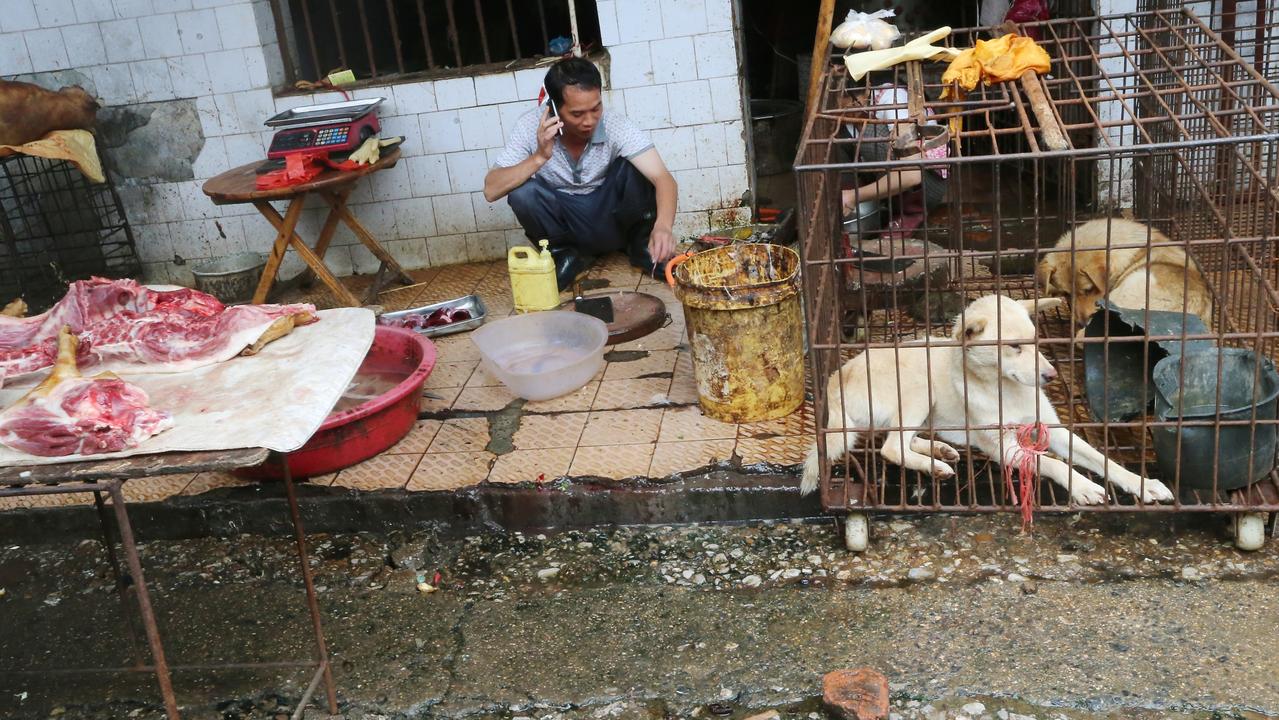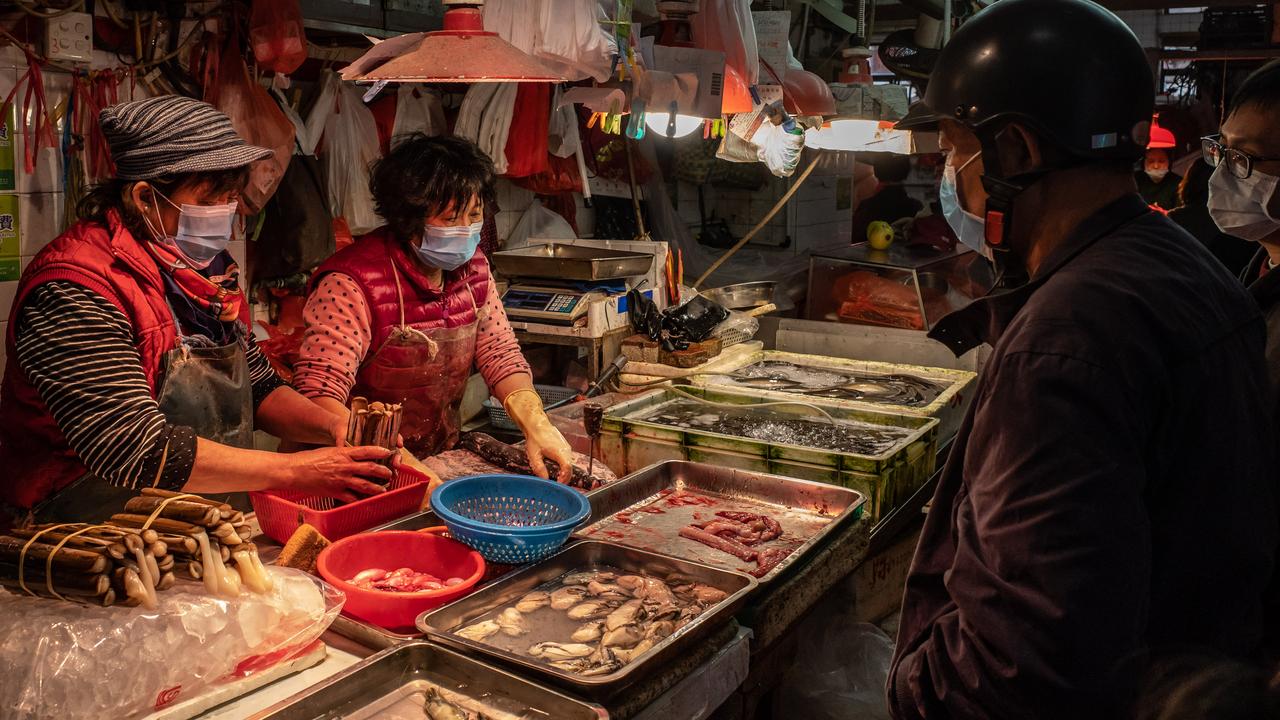China bans sale of cats, dogs for meat amid coronavirus pandemic
A Chinese city has banned the sale and consumption of dogs, cats and wild animals in the wake of the deadly coronavirus pandemic.

A Chinese city has made the historic decision to ban the sale of dogs, cats and wild animals for meat.
The city of Shenzhen proposed banning wild animal sales in February this year, but the total ban was passed yesterday.
Residents of Shenzhen, a technology hub in southeast China with a population of more than 12 million, has now moved to ban the eating of all wild animals, whether they’re bred and raised in captivity or caught in the wild.
In the regulations, the government referred to eating wild animals as a “bad habit” and said the city needed to “enhance their awareness” of public safety.
The list of animals now banned from being eaten in the city is expansive — formerly residents were able to buy animals including snakes, turtles, bats, cats and dogs. To clarify what is now allowed to be bought and sold authorities preferred to write a list of meats citizens were allowed to consume, rather than saying those they couldn’t. Dogs and cats are not included on the list — chicken nuggets luckily still make the cut.
RELATED: Follow the latest coronavirus updates
RELATED: What are your chances of dying from coronavirus?


The ban comes after growing backlash to the wild animal trade in China, as coronavirus continues to cause international devastation. The virus, which has infected more than 900,00o people worldwide, has been traced to the Huanan seafood market in Wuhan, China.
It’s here, where animals including bats, snakes, dogs and pangolins were sold for food, that a cluster of 49 original cases of the virus occurred, and researchers believe the virus made its jump from animals to humans.
Under the new regulations in Shenzhen, an approved list of “edible animals” that can be bought and consumed in the city has been given, and anything that falls outside the list has been banned. The new regulations come into effect from May 1.
The list includes pork, beef, sheep, donkey, rabbit, chicken, ducks, geese, pigeons, quails, and other poultry and livestock raised for consumption. Seafood is also allowed, but some aquatic animals are now also protected under the regulations.
RELATED: Chinese wet markets still in operation despite COVID-19
RELATED: Why China’s cruel wet markets should be banned
The regulations also prevent businesses from profiting off the sale of prohibited animals, saying people and businesses must not “raise animals that are prohibited from eating for the purpose of providing food”.
“All citizens shall enhance their awareness of ecological environmental protection and public health safety, resolutely eliminate the bad habits of wild eating, and develop a scientific, healthy and civilised lifestyle,” the regulation urged of its citizens.
The city will now harshly penalise people caught breaking the rules.
People found selling “nationally protected wild animals” worth $2315 (10,000 yuan) will be fined between $34,700 and $46,300 (150,000 and 200,000 yuan).
If the animal is worth more than 10,000 yuan, they’ll be fined between 20 and 30 times the value of the animal.
The fines are similar for non-protected species, with fines of between $23,150 and $34,700 (100,000 and 150,000 yuan) for animals worth less than 10,000 yuan.
Where the non-protected species is worth more than 10,000 yuan the accused will face a fine of between 15 and 20 times the value.




